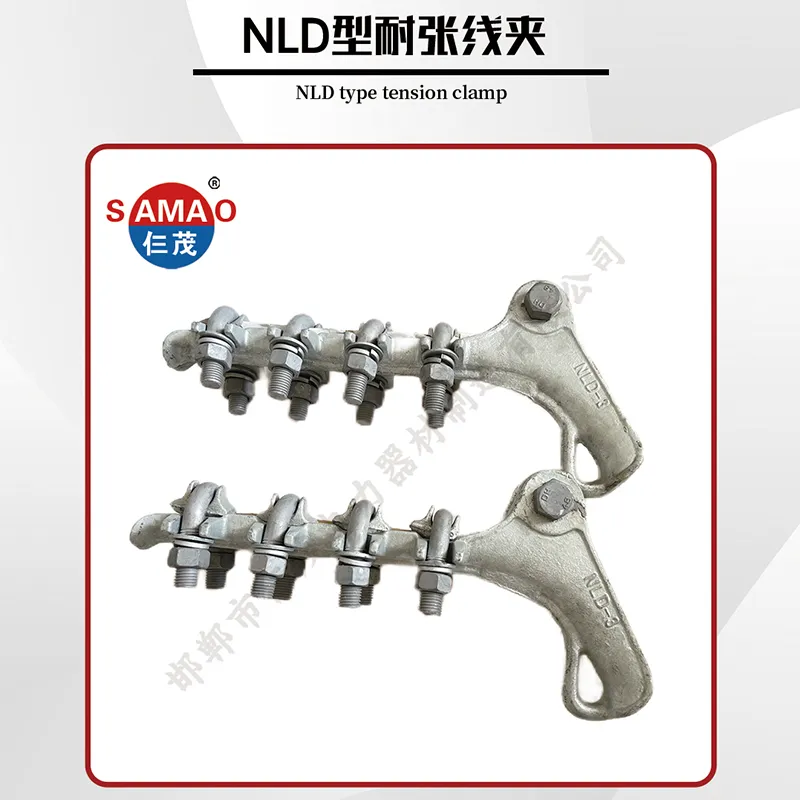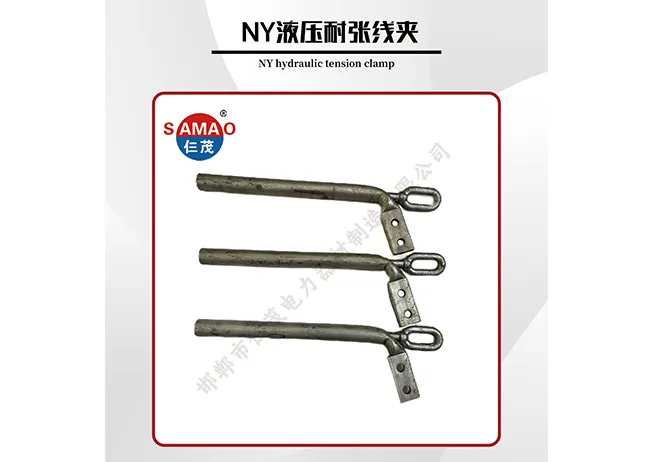1 月 . 26, 2025 08:01
Back To List
Suspension Clamp
Navigating the world of limited electrical equipment can be quite challenging, especially with the rapid advancements in technology and the ever-increasing demand for more efficient and sustainable solutions. The term ekipamentu elétriku limitadu refers to scenarios where electrical systems face restrictions due to various factors such as location, resource availability, or specific regulatory mandates. As a seasoned professional with years of experience in the field, I will provide valuable insights and authoritative guidance for making informed decisions in choosing and using such equipment.
The economic factor also plays a significant role in the deployment of limited electrical equipment, especially for small to medium-sized enterprises. Cost-effectiveness does not necessarily mean choosing the cheapest option, but rather selecting solutions that offer the best return on investment over time. Through evidence-based analysis and collaboration with financial experts, I've helped clients identify equipment that not only performs under limited conditions but also integrates seamlessly with existing systems, potentially leading to long-term cost savings. From an experience standpoint, continual improvement and adaptation are essential. By staying informed on the latest technological advancements and industry trends, I maintain an authoritative stance in recommending systems that can be easily upgraded or scaled. Furthermore, engaging with manufacturers during the developmental phase of new products ensures that they are well-suited for the dynamic needs of limited electrical environments, a practice that I've found to be invaluable in maintaining a competitive edge. Ensuring trust in the implementation of limited electrical equipment involves clear communication and post-installation support. Clients benefit from detailed documentation, transparent reporting, and accessible customer service that address any arising issues promptly. This trust-building practice has been a cornerstone of my professional approach, resulting in long-standing client relationships and a strong reputation in the industry. In summary, addressing ekipamentu elétriku limitadu requires a blend of expertise, adaptability, and a keen understanding of both technical and economic landscapes. Through years of dedicated practice, my approach to navigating these challenges not only enhances operational efficiency but also delivers sustainable and reliable solutions, reinforcing a trusted standing in the field of electrical systems management.


The economic factor also plays a significant role in the deployment of limited electrical equipment, especially for small to medium-sized enterprises. Cost-effectiveness does not necessarily mean choosing the cheapest option, but rather selecting solutions that offer the best return on investment over time. Through evidence-based analysis and collaboration with financial experts, I've helped clients identify equipment that not only performs under limited conditions but also integrates seamlessly with existing systems, potentially leading to long-term cost savings. From an experience standpoint, continual improvement and adaptation are essential. By staying informed on the latest technological advancements and industry trends, I maintain an authoritative stance in recommending systems that can be easily upgraded or scaled. Furthermore, engaging with manufacturers during the developmental phase of new products ensures that they are well-suited for the dynamic needs of limited electrical environments, a practice that I've found to be invaluable in maintaining a competitive edge. Ensuring trust in the implementation of limited electrical equipment involves clear communication and post-installation support. Clients benefit from detailed documentation, transparent reporting, and accessible customer service that address any arising issues promptly. This trust-building practice has been a cornerstone of my professional approach, resulting in long-standing client relationships and a strong reputation in the industry. In summary, addressing ekipamentu elétriku limitadu requires a blend of expertise, adaptability, and a keen understanding of both technical and economic landscapes. Through years of dedicated practice, my approach to navigating these challenges not only enhances operational efficiency but also delivers sustainable and reliable solutions, reinforcing a trusted standing in the field of electrical systems management.
Next:
LATEST PRODUCTS




